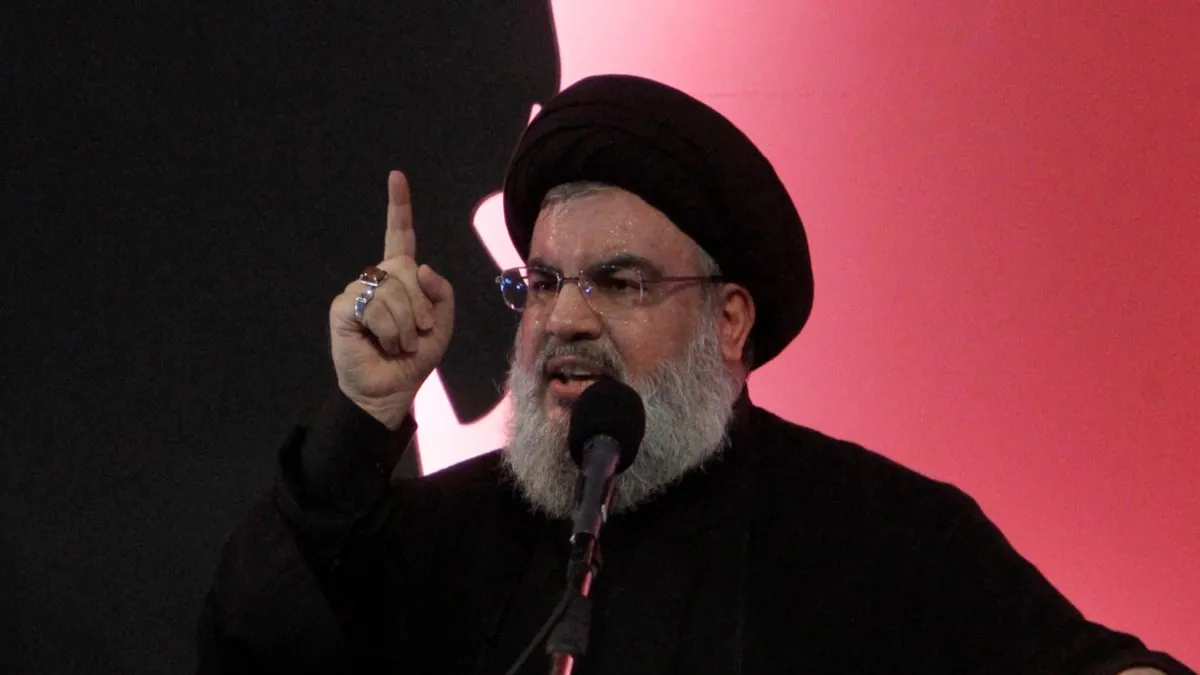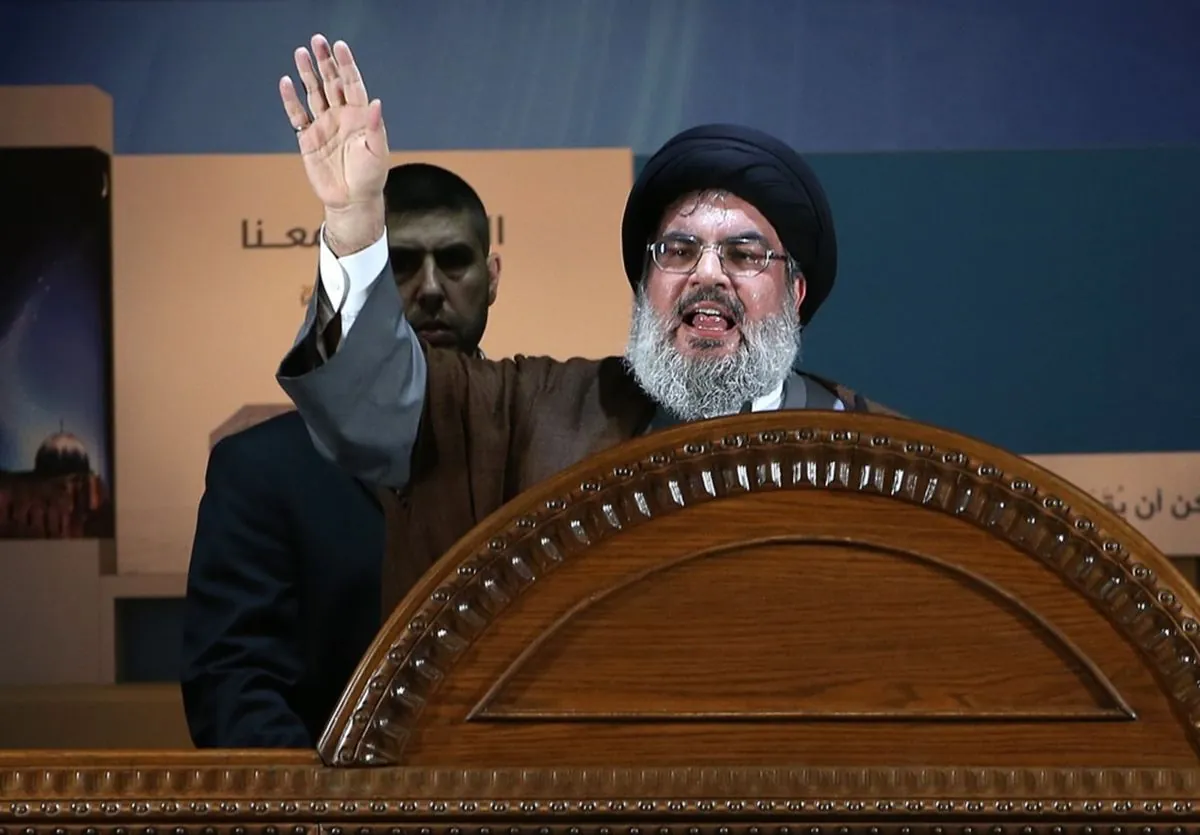Hezbollah's Nasrallah: From Beirut Slums to Middle East Power Broker
Hassan Nasrallah, Hezbollah's leader for over 30 years, has transformed the group into a major regional force. Recent Israeli airstrikes in Beirut target the organization's headquarters, escalating tensions.

Hassan Nasrallah, the long-standing leader of Hezbollah, has been a central figure in Middle Eastern politics for over three decades. His leadership has transformed the Lebanese militant group into one of the most influential paramilitary organizations in the region.
Recent events have brought Hezbollah back into the spotlight. Israeli airstrikes targeted six buildings in Beirut's southern suburb of Harek Hreik, marking the largest attack on the Lebanese capital in nearly a year of ongoing conflict between Israel and Hezbollah. The Israeli military claimed the strike hit Hezbollah's headquarters, resulting in numerous casualties.
Nasrallah's journey from humble beginnings to becoming a powerful regional leader is remarkable. Born in 1960 into an impoverished Shiite family in Beirut, he later relocated to southern Lebanon. His early involvement with the Amal movement, a Shiite political and paramilitary organization, set the stage for his future role in Hezbollah.

Hezbollah, founded in 1985, emerged as a resistance movement against Israeli occupation of southern Lebanon. Under Nasrallah's leadership since 1992, the organization has evolved into both a political party and a militant group with significant influence in Lebanon and beyond.
The group's military capabilities have grown substantially, with an estimated 25,000 active fighters and a large arsenal of rockets and missiles. Hezbollah's involvement in conflicts extends beyond Lebanon's borders, including participation in the Syrian civil war and operations in Iraq.
"We will not halt our attacks on Israel until a ceasefire is reached in Gaza."
Nasrallah's leadership during the current Israel-Hamas conflict has been characterized by defiance. Hezbollah began attacking Israeli military posts along the border shortly after the conflict's outbreak, describing it as a "backup front" for Gaza. The organization's actions have led to increased tensions and retaliatory strikes from Israel.
Hezbollah's influence extends beyond military operations. The group operates an extensive social services network in Lebanon, providing healthcare, education, and welfare to many citizens. This multifaceted approach has contributed to its strong presence in Lebanese politics and society.
However, Hezbollah's activities have not been without controversy. The organization is considered a terrorist group by many Western countries and has been accused of involvement in international terrorism and drug trafficking. It has also been subject to numerous international sanctions.
As tensions continue to escalate in the region, Nasrallah's role as Hezbollah's leader remains crucial in shaping the organization's response and its impact on regional stability. The recent Israeli airstrikes in Beirut serve as a stark reminder of the ongoing volatility in the Middle East and the complex web of alliances and conflicts that define the region's geopolitics.


































